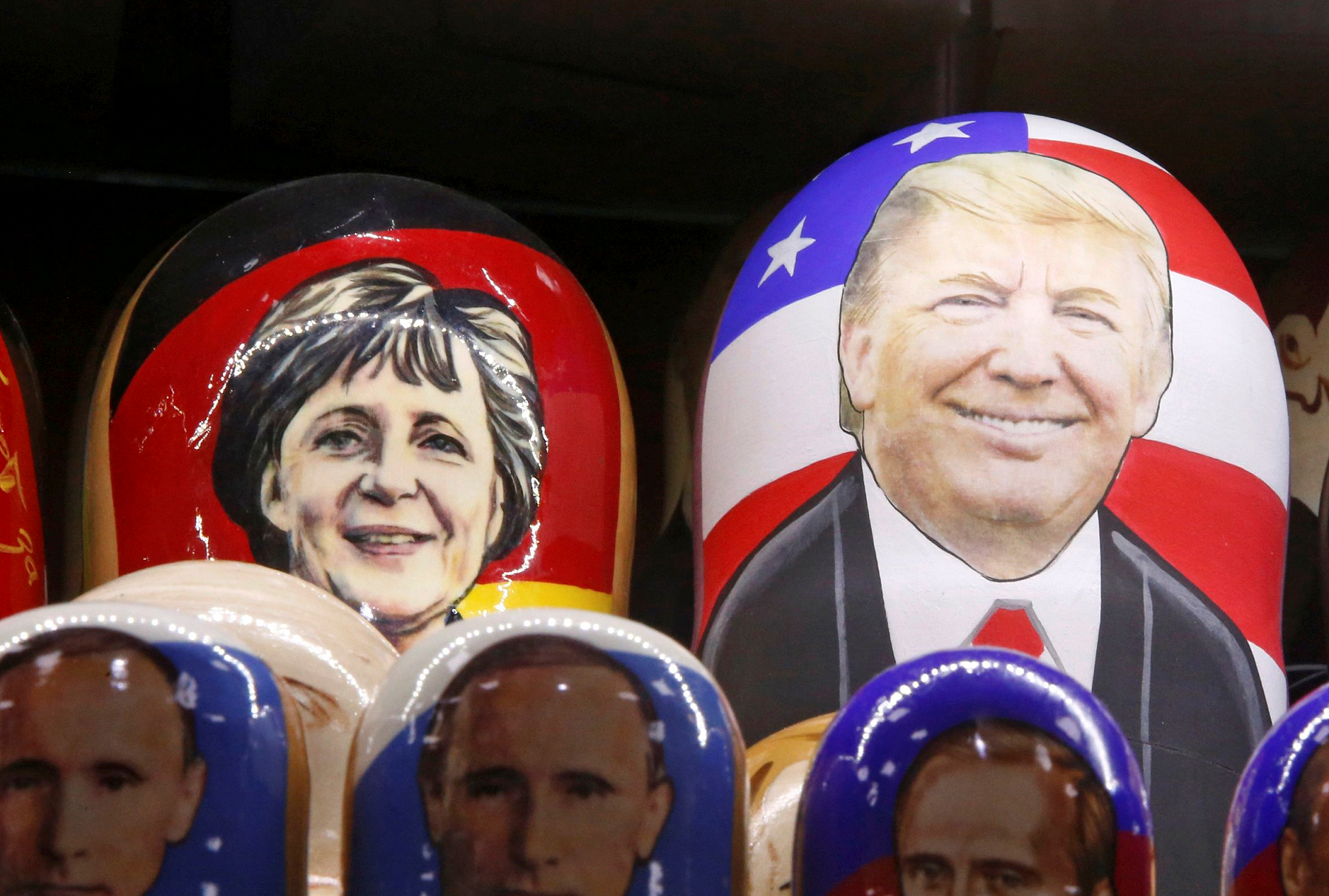
THE ODD COUPLE: MERKEL AND TRUMP

Update: this meeting has been delayed to Friday due to a storm about to hit Washington
Angela Merkel and Donald Trump couldn’t be less alike, but on Tuesday this odd couple will meet to lay the foundation for a crucial relationship.
Mr Trump puts high stock in personal connections with world leaders. Acutely aware of this, the veteran German will seek to put aside their differences to craft a strong working relationship with America’s new president. Whether Trump will play along is another question entirely.
Discussions are expected to focus heavily on trade. Trump has been outspoken about combatting the country’s trade deficit with Germany, which comes in at $65 billion a year. The administration has previously suggested a 35% tax on German cars. The implementation of this policy would be disastrous and could result in tit-for-tat measures that neither country can afford.
With around half of all German jobs reliant on exports, Ms Merkel is in a particularly difficult situation; she must both win over her counterpart and stand up for German interests. Merkel will be accompanied by the chiefs of BMW and Siemens – two of Germany’s largest companies – who are expected to lay out their plans to hire and invest more in the States.
Given the high stakes and opposing personalities, it’s little wonder Der Spiegel is calling Tuesday’s talks the “the most difficult meeting Merkel has ever faced”.
LOOKING FOR A DEAL: POST-TPP TRADE

Former Trans-Pacific Partnership countries, together with China and South Korea, will meet in Chile on Tuesday to push free trade plans forward beyond the now-defunct deal.
While the US withdrew from the agreement in January, the remaining 11 countries have expressed strong interest in proceeding with another manifestation of an Asia-Pacific trade deal.
Countries are likely to flirt with the idea of joining or expanding the China-led Regional Comprehensive Economic Partnership (RCEP), which is currently being negotiated with the ten ASEAN countries, India, Japan, South Korea, Australia and New Zealand.
However, concerns have repeatedly been raised about the lack of labour, environmental and intellectual property protections in RCEP. Australia, New Zealand and Canada have indicated interest in negotiating as a bloc, which could see more developments on these fronts. The Sino-centric Asia-Pacific economic order is beginning to take shape.
Dig deeper: Asian trade deals: USA bails, the region carries on
A FINE LINE: HONG KONGERS DEBATE

Candidates competing for Hong Kong’s top political position will face off in a two-hour televised debate on Tuesday. The three candidates appeared together for the first time on Sunday in a debate that featured questions from the audience but no direct sparring. Tuesday’s event is expected to be much livelier.
Former top administrator and pro-Beijing candidate Carrie Lam is by far the favourite to clinch the top job. She’s already secured 572 of the 601 Election Committee votes needed to be elected chief executive on March 26. Her challengers – John Tsang, the territory’s former finance minister, and Woo Kwok-hing, a former judge – stand little chance.
Whoever does assume the top post will have to strike a balance between appeasing local pro-democracy voices and managing the crucial mainland relationship. But Beijing’s slow-moving assault on Hong Kong’s cherished liberties has led some in the pro-democracy camp to call for independence – something the mainland cannot tolerate. Treading this fine line, all while managing a city of 7 million, is the challenge awaiting the next chief executive.
HAPPENING ELSEWHERE…
The third round of the Astana peace talk process between Syrian rebels and the Assad regime begin. The talks will proceed despite key rebel groups saying they won’t attend after sustained and repeated violations of ceasefire agreements. The UN-backed Geneva talks are expected to resume next Monday.
Volkswagen, the world’s largest carmaker, will announce its earnings. Aided by the high-performing Audi and Porsche brands, record-level revenues are expected, but the $6.8 billion outlay related to the emissions scandal will eat away at net profits.
Iceland will finally lift the last remaining capital controls related to the 2008 financial crisis. The controls had restricted foreign investors from taking their money out of Iceland. All three of the country’s major private banks defaulted in 2008 after heavy exposure to non-performing loans.

